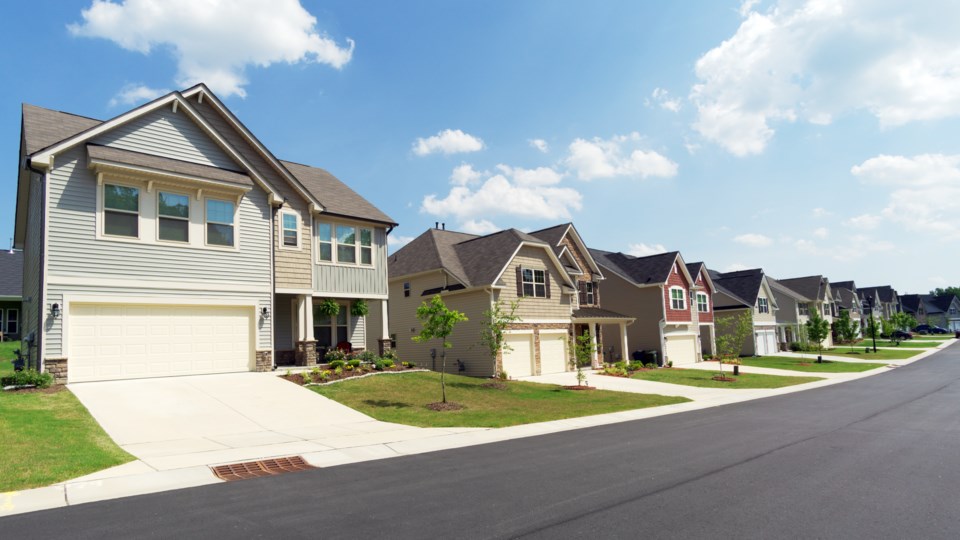This time last year, we were still only just learning about the COVID-19 pandemic and the potential threats it could have on our economy, industries and livelihoods.
The pre-pandemic real estate markets in census metropolitan areas (CMAs) across Canada saw supply shortages looming and demand beginning to escalate, increasing prices and uncertainty in what was once a predictable and steady housing market.
Fast forward to today and the residential real estate and construction industry looks far different than it did for both builders and buyers just 365 days ago.
Residential home builders have been forced into new ways of serving their customers. “Shopping for a new home from home” has taken on a whole different meaning in the new housing market, and our industry has been faced with material and labour shortages that continuously require adaptation.
Despite the challenges faced by our industry, we have been able to stay agile and continue construction, with modified changes to the way we approach our operations. Some of these adjustments have yielded greater efficiencies and improvements to the business of home building — practices that I can see outliving our current circumstances.
The residential construction industry represents one of the largest employable bodies in Canada. When considering all of the trade industries involved in the supply and installation of materials to build new homes, it is imperative that residential real estate and construction continue building momentum so that our economy can survive.
While we all thought the pandemic would bring the already hot Canadian real estate market to a halt, it did quite the opposite. Take Guelph as an example. Last summer, MoneySense magazine named Guelph the best city in Canada to buy real estate in 2020, moving up from second place the year prior.
Guelph’s local housing market hit new records as we closed out 2020 with single family home values increasing by 19.5%, and home sales up by 48.6%. Named one of Canada’s fastest growing communities, Guelph’s population growth rate is now at a steady 1.5%.
But, housing prices generally fall during a crisis, don’t they?
Historically, people often refrain from big ticket purchasing such as a new home during times of uncertainty. Following the 2008 recession, new house prices decreased year over year across the country.
Almost a year into the current pandemic, however, home prices have skyrocketed.
What has happened to the supply and demand of Canada’s real estate market is nothing short of remarkable, especially in lower cost suburban areas and cities within comfortable distance of large urban centres.
According to a recent study by Statistics Canada, Canadian metropolises saw record losses from July 2019 to July 2020, with an increased number of Canadians moving out of large urban centres and relocating to suburban areas.
As consumers, our values have changed. With people now spending more time at home, the demand for larger homes has increased tremendously to accommodate home offices and remote work, at-home learning, amenities, access to green space and additional lifestyle changes.
The “new-found” value we place on our living spaces is like nothing we’ve ever seen before.
When we talk about economic recovery for our country, the resilience and strength of the new housing market and residential construction industry must be highlighted. Now the biggest percent of GDP it has ever been, Canada’s economy will rely heavily on residential investment as it has proven to recover much faster than other segments in the past.
2020 shed a light on the vulnerabilities of other industries. With many unstable and some even collapsing, the housing market and ongoing construction activity is continuing to stimulate our economy when we need it most.
Home prices have so far been resistant to recession, with a 22.8% increase in resale price for all property types, according to the Canadian Real Estate Association (CREA). What we also know is that the industry is necessary to preserve life, health, public safety and basic societal functioning. Throughout all of our known history, building and construction and the need for a place to call home has continued; it has evolved, and it has endured.
Cities with strategic geographical locations, forecasted population gains, increased real estate investment value and strong economic performance will become Canada’s economic growth and recovery leaders.
It’s CMAs such as Guelph that will play a role in the economic recovery of our country in the days when we can confidently say the pandemic is behind us.
About the author
Lisa Schuett is a 25+ year veteran of the Canadian real estate, residential housing and construction industries and is the Vice President of Terra View Homes — esteemed builder of new, custom and Net Zero homes in Guelph and Southwestern Ontario.
